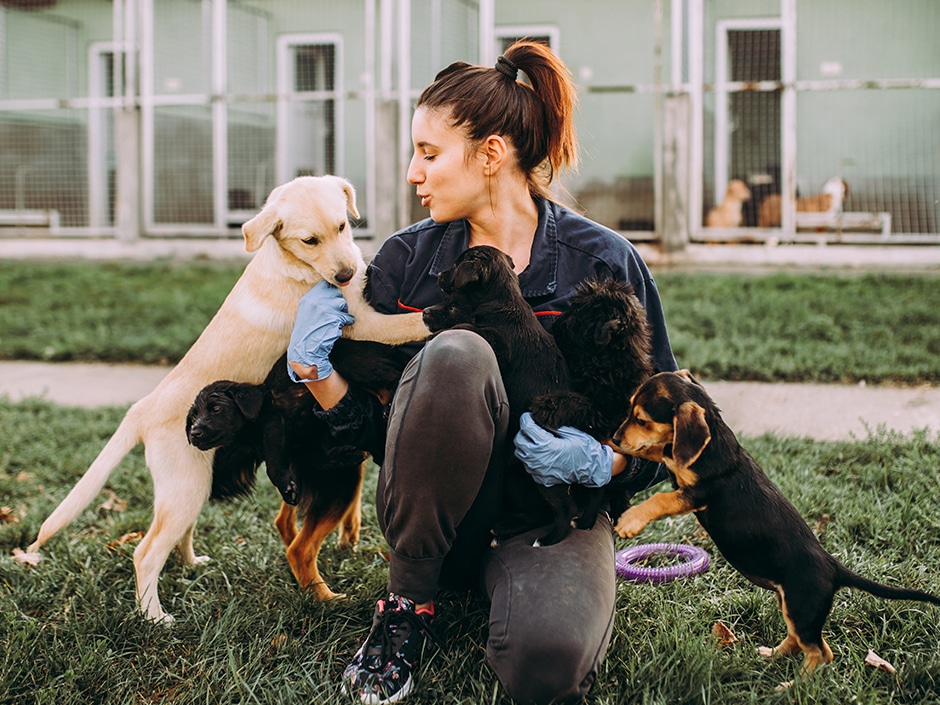Why not adopt a dog?
DIY and how-to

There are several animal welfare organisations in the Western Cape, like the SPCA, that need your help in finding ‘forever homes’ for their dogs. When adopting a dog there is a fee attached, that goes towards covering the cost of sterilisation and their shots. If you are unable to adopt, then why not assist with a donation?
When bringing a dog into your family, you are taking on a serious responsibility. This creature will depend on you for food, shelter and love. You will also be responsible for making sure that your dog is as healthy as he can be at any given time.
- Dog food – It can be tempting to simply buy what’s on sale each time you go shopping for dog food, but this is not recommended. Your dog’s digestive system can be upset by constantly changing his food. Start with a good, high-quality food, and if your dog seems to like it and tolerate it well, stick with it.
- Diet – A general guideline is to feed your dog 1 ½ cups of food for every 10kg of his ideal weight. For example, if your dog’s ideal weight is 30kg, then you should feed him 4 ½ cups of food per day. Don’t feed him according to his actual weight; if he is overweight you would be feeding him too much and if he is underweight you would be feeding him too little. When you do give him snacks, try to make them as lean and healthy as possible. And no chocolate! Chocolate can be deadly for dogs.
- Exercise – Your dog needs exercise just like you do, and even if you’re not too good about keeping up with your own fitness programme, try to make sure your dog keeps up with his. You can kill two birds with one stone by walking your dog every day because you will both get exercise.
- Immunisations – Make absolutely sure that your dog gets his immunisation shots when he needs them. They aren’t expensive, and you could save yourself a lot of grief down the road.
- Check-ups – Take your dog to the vet at least once a year for a full physical examination. Though some medical problems can’t be predicted, a yearly physical can often alert you to possible problems with your dog that you can take steps to avoid, or that you can treat early.
- Safety – Your dog needs to be protected from the outside world. Make sure that your dog is on a leash when he goes out, or is in a secure yard that he can’t get out of. If your dog isn’t used to being around small children, only let him be around them under close supervision, if at all.
- Training – Yes, training can be healthy for your dog, both mentally and physically. If your dog is trained in basic commands, such as ‘sit’, ‘stay’, and ‘come’, he is less likely to get into trouble or into dangerous situations.
- His own place – Make sure that your dog has an area where he can be undisturbed. Though dogs are pack animals and prefer to be close to their families, they still like having a certain place that is all their own. A dog bed under a counter, a kennel in the backyard, a special blanket. When your dog is in his special place, make sure he is left alone to rest. Enough rest is as important for your dog’s health as it is for yours.
- Love – Loving your dog is healthy for him. Play with him, hug him, talk to him – he will flourish on the attention and be calmer and more self-assured.
You might also like
Shop online
-
NO ANT RTU 750ML
- R144.99
- Add to cart Learn More
-
- Sale!
HEALTH FIT 32 400G
- Original price was: R89.99.R74.99Current price is: R74.99.
- Add to cart Learn More




